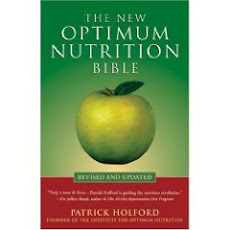While the drugs industry flounders upon the shoals of corporate greed, dishonesty and public disillusionment with its failure to deliver good health, more good news emerges by contrast from the world of nutritional science with a leap forward in the search for a safe remedy for breast cancer.
by Jon Davy
Recent research has turned up very encouraging evidence that Curcumin and Piperine (substances derived from Turmeric and Black Pepper respectively) have huge potential as breast cancer treatments.
A recent study, published online in the journal Breast Cancer Research and Treatment, reveals for the first time the exact mechanics of how these natural spice compounds can prevent or even eliminate cancer.
The study shows that Curcumin and Piperine target cancer stem cells. Stem cells are basic, unspecialized cells, the blank templates so to speak, from which can grow any type of cell in an organ and cancer stem cells comprise the cells that fuel the growth of malignant tumours.
This discovery is of huge importance because chemotherapy is useless against these cells, which is the reason why cancers so often recur and spread in spite of heavy treatment with highly expensive, toxic and unpleasant “chemo.” The new study does show that the Turmeric and Black Pepper derivatives Curcumin and Piperine are able to do what chemo can't -- they limit the self-renewal of stem cells.
If the cancer stem cells can either be eliminated or their growth stopped, or both, using agents derived from nutrition and which cause little or no side effects, this, is extremely good news for breast cancer victims and women in general.
It is also good news for the health system in general because substances that already occur in nature cannot be invented in a laboratory and thus patented, rendering them the exclusive property of the inventor/manufacturer who can thus set a high price for them and make vast profits while the patent lasts. It is a matter of record that many natural substances do a better job than their man-made counterparts, more safely, with fewer or no side effects and at a fraction of the cost. This is of course bad news for the pharmaceutical industry that works hard and at great expense to bolster the “PR” of the drug-profit-drug paradigm and steer the citizenry away from nutrition and allied sciences. In so doing it labours to stave off its own extinction.
There is more good news for human health - and correspondingly bad news for the psycho-pharmacy - in that the same study showed the aforementioned compounds had no effect on cell differentiation, which is the normal process of cell development and that means these spice compounds are not toxic to normal breast tissue.
Women who are at high risk of breast cancer are currently given the choice of drugs such as Tamoxifen or Raloxifene for prevention, but most women won't take them because they are much too toxic. In addition, Tamoxifen and Raloxifene are designed to target estrogen but the most aggressive and deadly breast cancers are often not estrogen-related and tend to be problematic to treat.
The spice compounds, however, could impact malignancies whether they are estrogen-sensitive or not and this and the discovery that such dietary compounds also present very low toxicity make this an important and exciting development in the forward march of nutritional science.
Here then is yet more compelling evidence that dispensing with the overly drug-oriented medical paradigm presents a quantum leap forward in human health.
A Golden Age is coming – and there are no dinosaurs in it.
Author’s Footnote: The Noble Art of Noshi-do, from English slang, “nosh” (food) and the Japanese “do” (way). Literally: the Way of Nutrition
_______________________________________________________




.jpg)